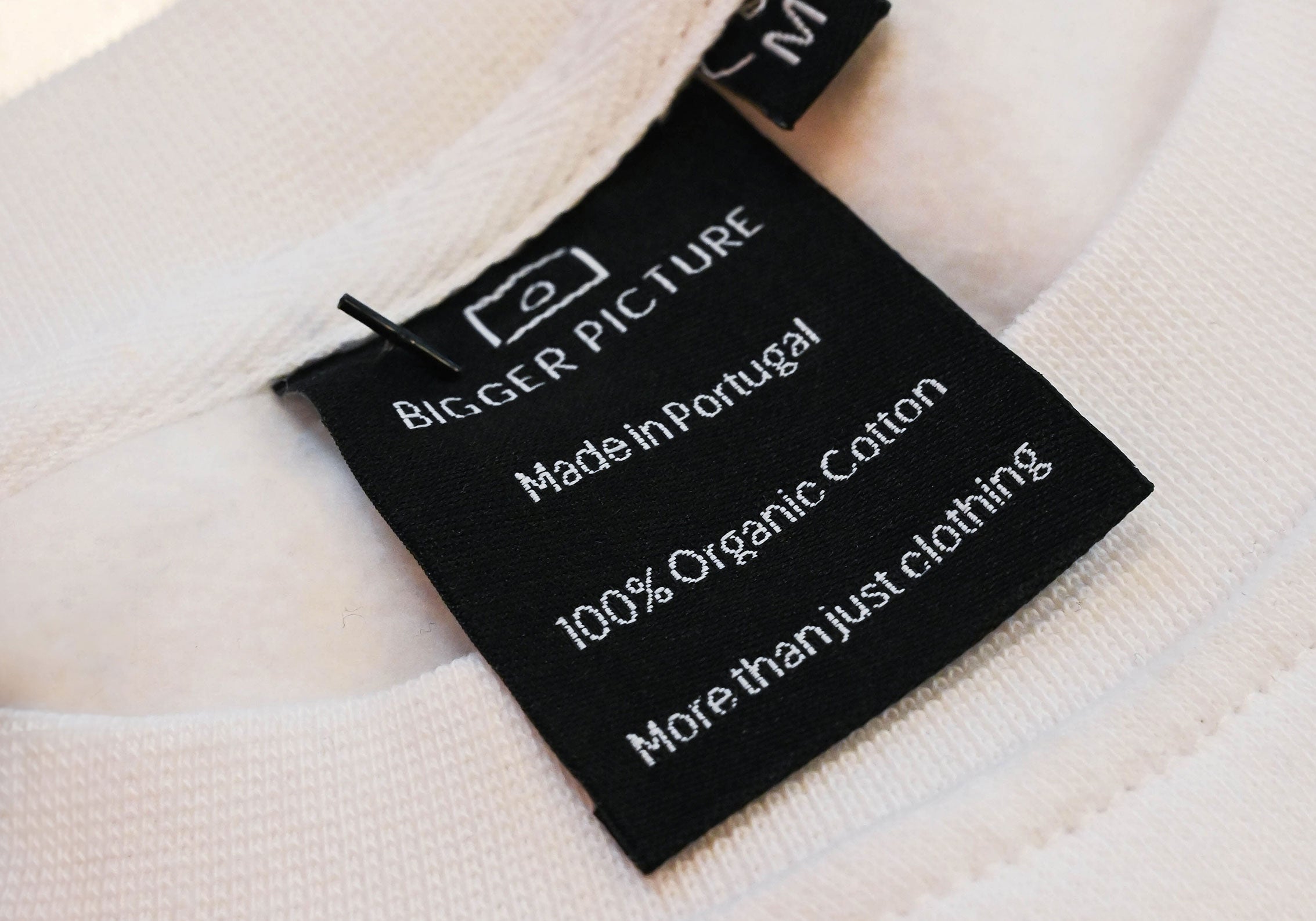We at Bigger Picture have been committed to sustainable fashion and a positive impact on the world for a number of years. Unfortunately, we see many companies around us that use the word sustainability more as marketing than as an aspiration. As a consumer it is extremely difficult to distinguish real promises from marketing, which is why we would like to tell you more about sustainability in the fashion world.
The Dark Side of the Apparel Industry
Some fashion brands claim to be sustainable, but practice "greenwashing" by making superficial sustainability claims without real commitment. They can have some sustainable elements in their collections, but at the same time be involved in unsustainable practices such as water pollution and poor working conditions.
The Hidden Costs of Unsustainable Clothing
Sustainable clothing may seem more expensive, but cheap clothing has hidden costs such as poor working conditions and environmental pollution. Low prices often go hand in hand with worker exploitation and overuse of natural resources, which impacts future generations. Investments in sustainable clothing contribute to fair wages, safe working conditions and environmentally conscious production, which is more beneficial for both people and the planet in the long term.
Making a sustainable choice, where do you start?
Making sustainable choices starts with conscious shopping, an essential step towards positive change. When shopping, both in physical stores and online, it is important to pay attention to various aspects to make a well-considered and sustainable choice. Here are some guidelines you can follow:
Transparency:
Choose brands that are open about the origin and production method of their garments. Companies that are transparent about their supply chain demonstrate responsibility and sustainability.
Certifications:
Look for garments with recognized sustainability labels, such as the Global Organic Textile Standard (GOTS) or Fair Trade. These certifications indicate a commitment to ethical and environmentally friendly production.
Materials:
Prefer brands that use organic or recycled materials. Organic cotton, hemp or tencel are examples of environmentally friendly fabrics that reduce the impact on the environment.
Long lifespan:
Choose clothing from sustainable brands that pay attention to quality and craftsmanship. Sustainable garments often have a longer lifespan, which contributes to less waste and a more circular economy.
Community involvement
Investigate whether the brand shows commitment to fair wages and safe working conditions for its employees. For example, check product information to see if there are any mentions of where the clothing is made or if they work with certified factories. Companies that demonstrate social responsibility make a valuable contribution to a fairer industry.
By following these guidelines, you as a consumer can actively contribute to a more sustainable fashion industry and at the same time enjoy high-quality products with a positive impact on people and the environment.




